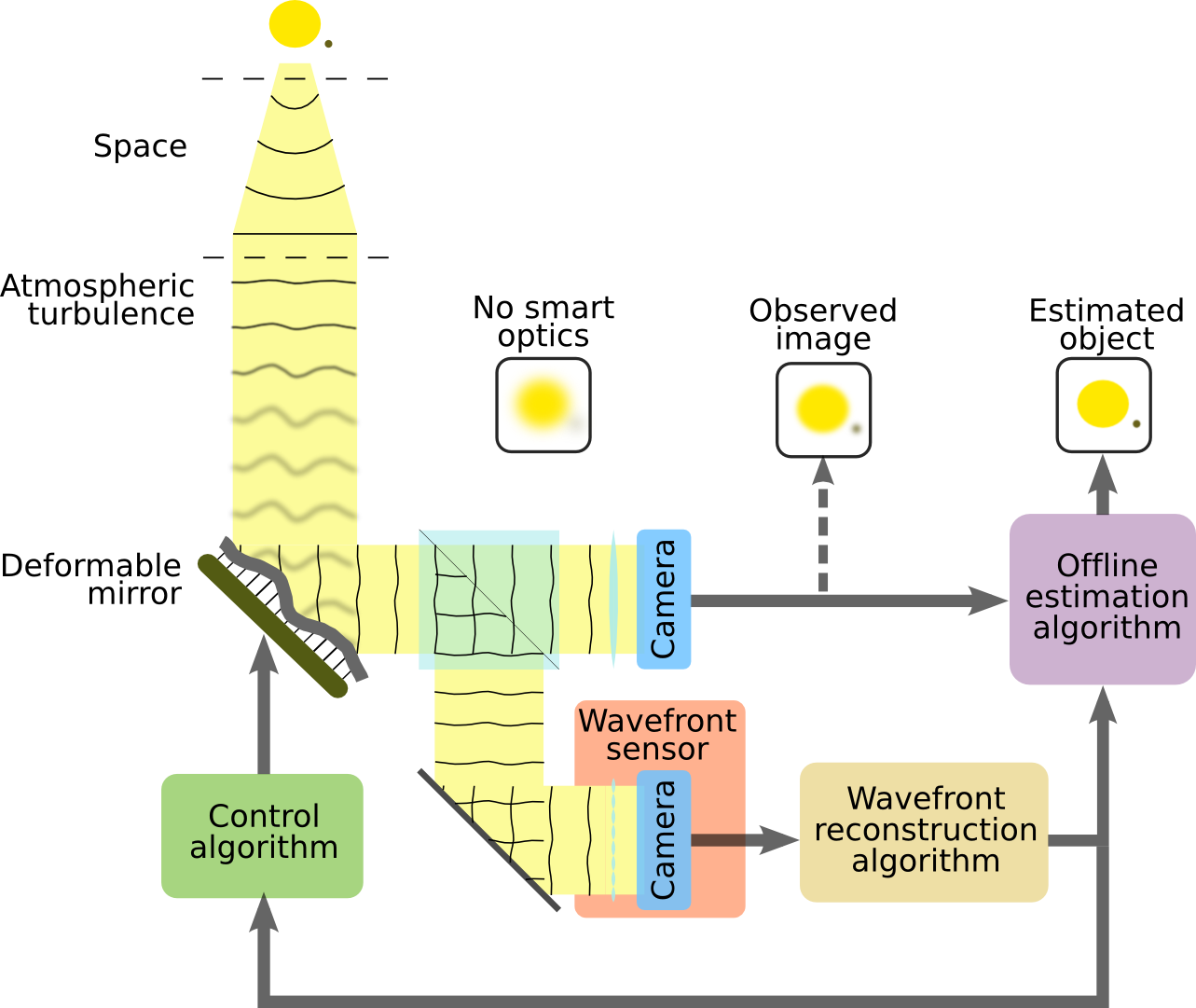Smart Optics Systems programme (Funding: STW Perspectief)
Integrated high resolution observation through turbulence
| Applicants: | Prof. Christoph Keller (Leiden University, project
leader) Prof. Michel Verhaegen (TU Delft) |
| Researchers: | Dr. Visa Korkiakoski (Utrecht) Dr. Raluca Andrei (TU Delft) |
| Partners: | Dr. Niek Doelman (TNO) Dr. Klamer Schutte (TNO) Dr. Lex van Eijk (TNO) Dr. Piet Schwering (TNO) Dr. Gleb Vdovin (Flexible Optical) Ir. Merijn Voets (Nedinsco) Ir. Rudolph Le Poole (Leiden Sterrewacht) Prof. O. von der Luhe (Kiepenheuer Institute for Solar Physics, Freiburg, Germany) |
| Publications: |
|
|

Adaptive Optics and image post-processing in astronomical observation.
| |
| Project outline: |
Dynamic optical aberrations induced by atmospheric turbulence form a major limitation in the achievable resolution of high-end optical imaging instruments, like ground-based telescopes and longrange surveillance cameras. Several techniques have been developed to reduce the effect of these distortions on the imaging quality, including adaptive optics (AO) and post-facto reconstruction algorithms. Although, the two approaches have been combined in the past, they have not been studied as constituents of an overall system, such as to optimize the total system performance. This research proposal aims at an integrated approach of optimization of overall image quality, in which the actions of the AO deformable mirror and the post-facto reconstruction algorithm are geared to one another. Major improvements in resolution are expected with the joint optimization approach, in particular with the aspects of (i) the use of AO wavefront sensor signal data and deformable mirror signal data as input to post-facto reconstruction and (ii) introducing known phase aberrations during the real-time correction with the AO system to improve the performance of post-facto reconstruction, in particular of phase-diversity algorithms. Moving towards an overall real-time system, (iii) the feedback of wavefront aberration information deduced by post-facto reconstruction into the adaptive optics system is also a very promising aspect. Furthermore, important issues like adaptivity with respect to the timevariant turbulence statistics and the use of robust estimation tools taking into account the uncertainty in the point spread function will be addressed in this research. The developed techniques will be tested and validated on a laboratory set-up first and later on by performing real-life turbulence experiments on a telescope and with a long-range surveillance camera. |